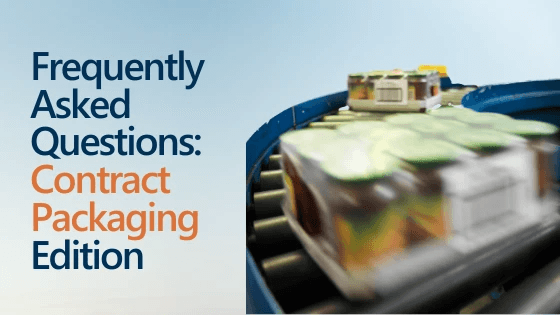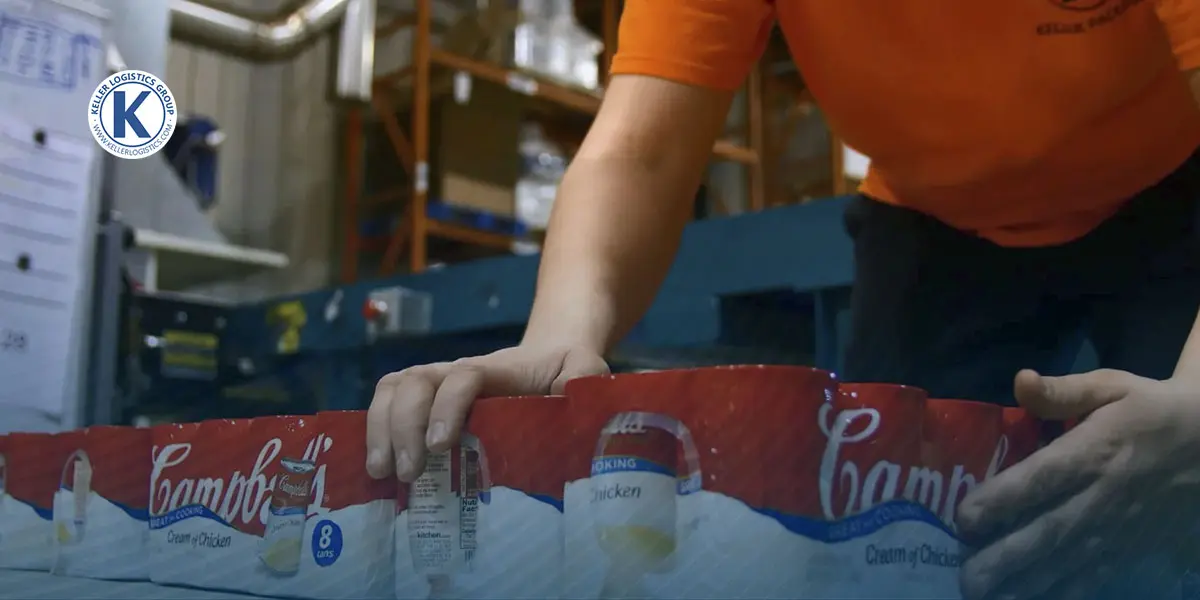


Contract packaging, or co-packing, is a service that organizations use when they outsource their product packaging. This way, your organization — especially if you are in the food and beverage, health, or pharmaceutical industries — can produce large orders without having to scale manufacturing practices or staff. This approach reduces costs and speeds up product packaging and distribution, as everything is done from one location.
By referring to contract packing FAQs, you can ensure your contract packaging plan aligns with your organization’s needs and budget.
On the surface, packaging may seem like a simple thing. However, it can be challenging to recognize the subtle differences that make one packaging choice a better fit for a certain kind of product over another. It’s important to understand these nuances between the various types of contract packaging services so you can make well-informed decisions that protect and enhance the appeal of your products on shelves.
Many companies that don’t have the time or money to develop their packaging facilities or invest in state-of-the-art equipment will often outsource some, or all of their contract packing needs. This is also referred to as co-packing. This term refers to the process of outsourcing a company’s essential packaging services to a trusted contract packager, or co-packer.
A reliable co-packer or third-party logistics provider that has the expertise and capabilities to manage your specialized packaging, assembly, and kitting processes can help you improve your operational efficiency overall.
If you’re not directly involved in the business, you may not know there are three fundamental levels of packaging that all serve different purposes — primary, secondary, and tertiary. Typically, the primary level of packaging is the material closest to a product, and the last piece a consumer removes before use.
For example, the can surrounding soda or a box that holds staples both represent different types of primary packaging. While this level can take a variety of forms, it usually protects your goods and promotes your brand in addition to educating or drawing in customers.
The secondary level of packaging is the additional packaging used to hold individual units together that are already in their primary packaging. For instance, two common examples of this second level include the six-pack rings holding the soda cans together or a carton containing pre-packaged vials of pharmaceuticals.
In many cases, secondary packaging mainly serves more of a utility purpose than the branding function of primary packaging, but it can also market your goods. It’s typically intended, however, to facilitate convenient transportation and help retailers easily restock their shelves. Like primary packaging, secondary packaging needs to be accessible yet also more durable to offer the proper protection for your product.
Repackaging refers to the process of removing a product from the original packaging it was first distributed in by the manufacturer to another container. Repackaging takes products that have already been in primary packaging and places them in entirely new packaging designed to meet customer needs.
Whether your product required safer packaging for inspections, was packaged incorrectly or was a medication that needed separating into smaller dosages, repackaging services exist to ensure that your finished goods are in the best format possible.
As manufacturers try to differentiate themselves from their competition, co-packing is an increasingly sought-after solution due to the many competitive advantages it can provide. After all, your product’s packaging and presentation will influence customers’ purchasing decisions. If you’re struggling to sort through the many layers and types of packaging that go into developing a finished product, consider working with a co-packer that can sweat the small stuff for you.
Since co-packing can help reduce a company’s carbon footprint and the amount of waste that packaging creates, 60% of consumers are more likely to buy a product that’s sustainably packaged over one that’s not. If you co-package your goods with recycled materials, you can also advertise your eco-friendly practices on the label of your product, which is an added marketing bonus.
More benefits that will give you a competitive advantage include:
Multi-packs and variety packs are two popular packaging trends, especially in today’s retail markets. Companies tend to lean toward one or the other without understanding why or when to use these forms of packaging.
Multi-packs, or bundles, are pretty much what they seem — multiple units of the same product packaged together in one container. They allow manufacturers to increase production volumes, which is what helps manufacturers provide discounted prices to consumers.
In comparison, variety packs combine several different products into one package to help manufacturers show the full extent of their goods. Both packaging options offer great opportunities for attracting new customers or gaining volumes, but variety packs can be more optimal for seasonal products.
Contract packaging services are a good fit for most organizations. Whether you run a startup, own a small business or need help with seasonal products. Contract packaging allows you to manage various workloads without investing in additional resources. If your operation is running new promotions or product launches, outsourcing packaging helps you speed up turnaround times and adapt to these specific packaging needs.
Ultimately, your organization can benefit significantly from outsourcing packaging to increase your production capacity, whether it is to manage seasonal demand if you are entering a new market or if you are scaling your business. This approach comes with numerous advantages to help you remain competitive and grow successfully.
At Keller Logistics, we’re an industry-leading 3PL that offers various co-packing services through our affiliate, Keller Warehousing & Co-Packing. From shrink wrapping to reworking and more, we can provide you with the 3PL partnership your company needs.
Our facility uses specialized machinery to package and wrap a variety of items, from variety packs to end-aisle displays and more. All food products are labeled to the necessary FDA, SQF, and USDA certifications.
Learn more about our co-packing facility, or contact us for a no-obligation quote today.